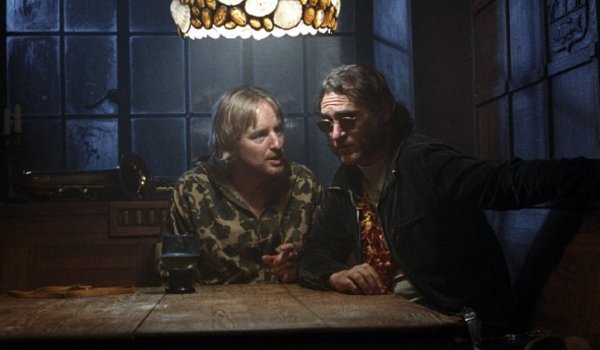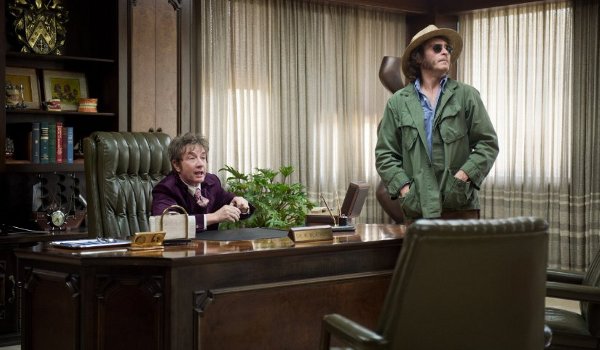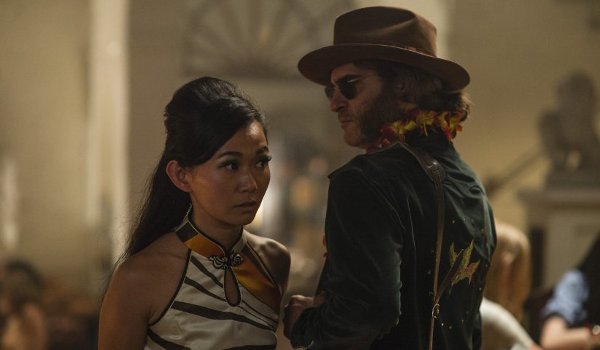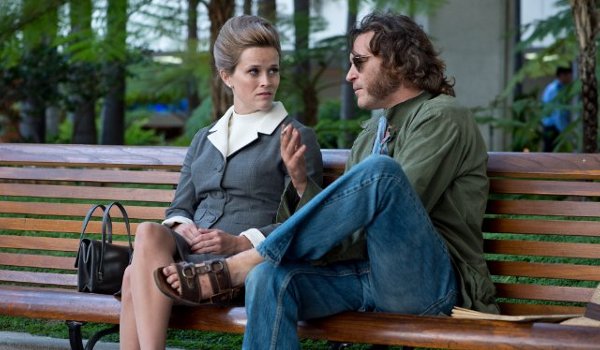- Title: Inherent Vice
- IMDb: link

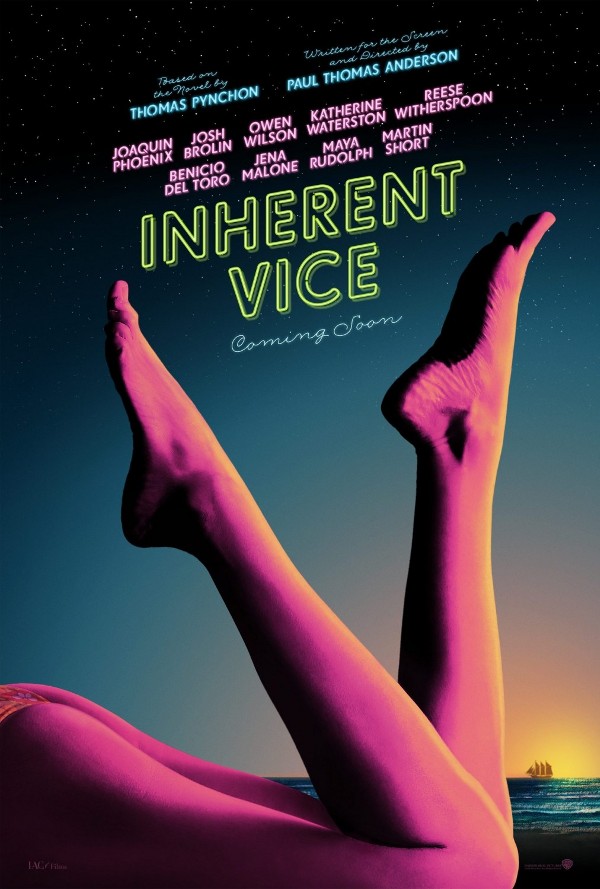 Is hippie noir a thing? Set in 1970 Los Angeles writer/director Paul Thomas Anderson‘s adaptation of Thomas Pynchon‘s novel of the same name follows the misadventures of pothead private investigator Larry “Doc” Sportello (Joaquin Phoenix). Doc is hired by his former girlfriend Shasta Fay Hepworth (Katherine Waterston), whom he has never gotten over, to foil a plot involving the forced incarceration of her current married boyfriend (Eric Roberts) into a mental institution in his family’s attempt to grab his millions.
Is hippie noir a thing? Set in 1970 Los Angeles writer/director Paul Thomas Anderson‘s adaptation of Thomas Pynchon‘s novel of the same name follows the misadventures of pothead private investigator Larry “Doc” Sportello (Joaquin Phoenix). Doc is hired by his former girlfriend Shasta Fay Hepworth (Katherine Waterston), whom he has never gotten over, to foil a plot involving the forced incarceration of her current married boyfriend (Eric Roberts) into a mental institution in his family’s attempt to grab his millions.
Filled with oddball characters with distinctive names, Inherent Vice is an intriguing blend of Pynchon’s writing with Anderson’s style featuring an all-star supporting cast of Josh Brolin as a L.A. police detective with an intense hatred for our P.I., Owen Wilson as a presumed dead musician whose wife (Jena Malone) hires Doc to discover the truth about his whereabouts, Hong Chau as “a small perfect Asian dewdrop” working at a massage profile where Doc is temporarily framed for murder, Reese Witherspoon as an Assistant District Attorney and another of Doc’s old flames, and Pretty Little Liars‘ Sasha Pieterse as a young runaway with a drug problem supported by her doctor (Martin Short).
Not unlike reading one of Pynchon’s novels, it took me a little time to warm-up to the film’s plot. Doc is a likable goof; think of him as a marginally more aware version of the Dude but with some actual deductive ability. Despite the decision to pare down the book, and cut-out a lengthy Las Vegas subplot, the film still meanders for as long as it takes Doc to make headway in his investigations. And, at least for me, the noir mystique is somewhat undermined by the bright sunshine and 70s look of the setting and the numerous over-the-top sequences of Doc and others smoking, snorting, and swallowing down any drugs in sight.
Even with these quibbles, Anderson succeeds in crafting an engaging story out of what is an overly-convoluted plot not made any clearer by our protagonist’s hazy state of mind through much of the tale. Inherent Vice isn’t the director’s best, but given the challenges inherent (so to speak) in adapting any Pynchon novel it’s something of a minor miracle. Armed yet again with an abundance of talent, Anderson puts everyone to work and several of the small roles actually steal quite a few scenes before the movie is done (particularly Brolin).
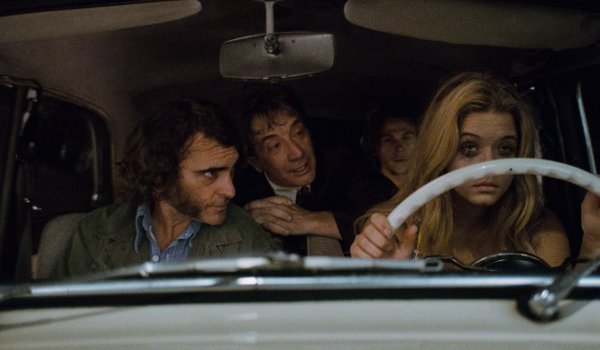
Some might be turned off by either or both the nature of the film and how it is told. The film captures the tone of Pynchon and does its best to make something of a straightforward story out of the author’s tendency to get a bit off track (sometimes in mid-sentence). Given the changes the film doesn’t have the bizarre poetry of Pynchon on the printed page but Anderson’s own stylistic touches help fill in the gaps.
Even if it doesn’t work for me as a hardboiled noir detective film, Inherent Vice certainly succeeds as a character study centered around the damaged Sportello attempting to enjoy himself and live in the moment but still haunted by Shasta and the power she holds over him. Not a classic femme fatale, Waterston brings a vulnerability to the role of a woman Doc knows all too well (and there in lies the problem). Inherent Vice is an easy film to appreciate but, much like a relationship worth fighting for, takes some effort to stick with and eventually love.

